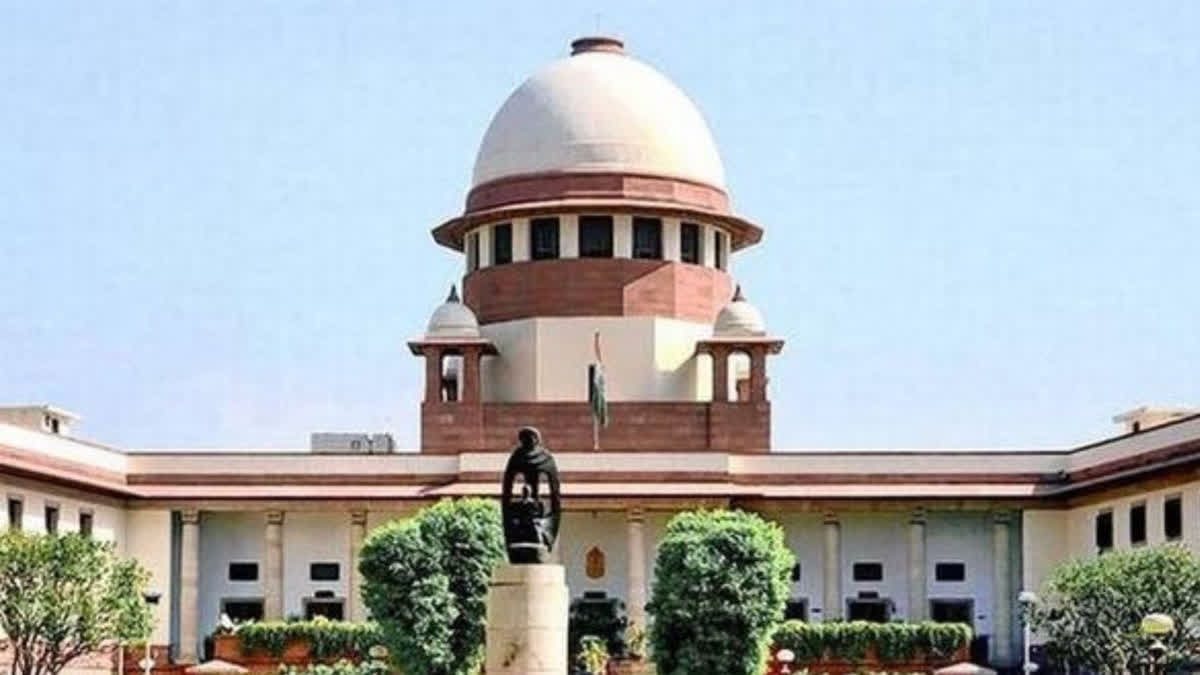New Delhi: The Centre contended before the Supreme Court Wednesday that the two expressions, anonymity and opacity, were repeatedly used in the context of electoral bonds scheme and the limited confidentiality can be lifted by judicial order. The petitioners, challenging the scheme, have vehemently argued before the apex court that opaque electoral bonds scheme for funding political parties will "destroy democracy”, as it promotes corruption and also does not allow a level playing field between the ruling and opposition parties.
A bench five-judge bench led by Chief Justice of India D Y Chandrachud and comprising Justices Sanjiv Khanna, B R Gavai, J B Pardiwala, and Manoj Misra, is hearing a clutch of petitions challenging the validity of the Centre's electoral bonds scheme as a source of political funding.
After the petitioners completed their argument, Justice Khanna queried the counsel, representing the Centre, there was a larger issue which the court is not raising which was election funding and “the second issue which arises, which dovetails into this regard to cooperate funding, whether it should be open, transparent? The other issue which arises is: they (petitioners) have referred to kickbacks and the bribes or quid pro quo…..”
Justice Khanna said this issue which may come up is with regards to opacity, who is funding etc., and if there is any quid pro quo, how would anybody establish it?
Solicitor General Tushar Mehta said that he has an answer to this query raised by the court. “Please my lords bear one thing in mind for the time being, appreciating my arguments, remove the two expressions repeatedly used: anonymity and opacity. It is restricted and limited confidentiality, which can be opened and the veil can be lifted by judicial direction. I will point that out”, said Mehta, before the lunch break. The hearing will resume in the matter after lunch and Mehta will begin his submissions before the court.
During the hearing today, CJI observed what would be the consequences if there was no provision for political parties with regard to donations under the Companies Act, 1956. He said that no company can donate for political purposes at all and though at first blush, it's regulated by statute, and what is conferred by statute can be taken away by statute, and no implication of fundamental rights can arise.
The Chief Justice asked a counsel, representing a petitioner, suppose there was no provision for political parties at all in the Companies Act 1956, what would be the consequences? And, in 1960, there was a 5 per cent net profit and then came further amendments. The CJI said, “Though it's a matter of statutory regulation, a company cannot contribute for these purposes without any provisions”.
Senior advocate Vijay Hansaria, representing a petitioner, submitted that a ban on corporate donations was imposed in 1968, which was removed in 1985 by another amendment. It was argued before the court that a company with an existence of less than three years cannot donate and a donation can't exceed 5 per cent of the average profit during three preceding financial years.
Also read: A five-judge bench of SC will hear pleas against electoral bonds scheme



